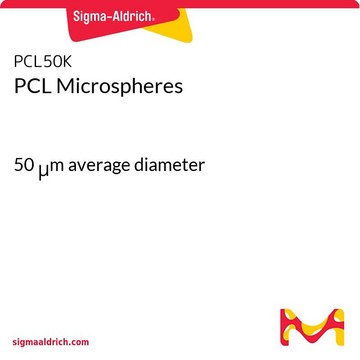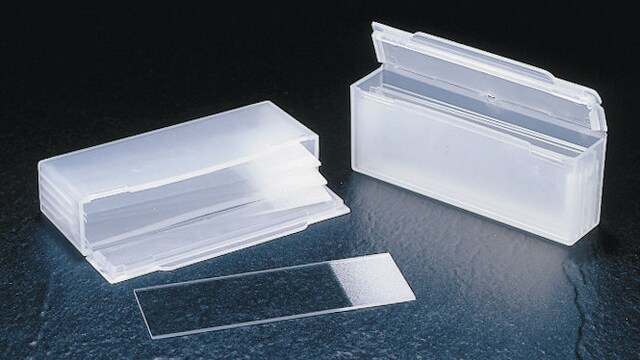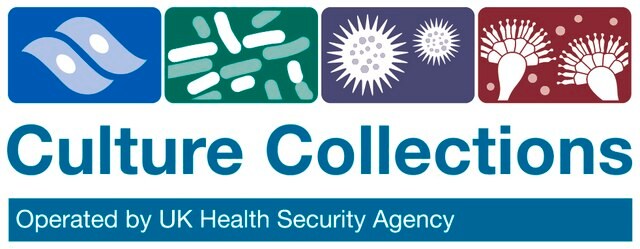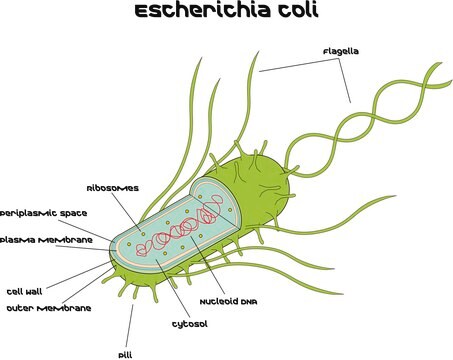SCC641
HCI-EC-23 Human Endometrial Cancer Cell Line

Sinonimo/i:
HCI-EC-23 Human Endometrial Cancer Cell Line
Autenticatiper visualizzare i prezzi riservati alla tua organizzazione & contrattuali
About This Item
Codice UNSPSC:
41106514
Prodotti consigliati
Origine biologica
human
Livello qualitativo
Confezionamento
vial of ≥1 x 10^6 vial (viable cells per vial)
Produttore/marchio commerciale
Millipore
tecniche
cell culture | mammalian: suitable
Condizioni di spedizione
liquid nitrogen
Temperatura di conservazione
−196°C
Applicazioni
- Each vial contains > 1X106 viable cells.
- Cells are tested negative for infectious diseases by Essential CLEAR Panel by Charles River Animal Diagnostic Services.
- Cells are verified to be of human origin and negative for interspecies contamination from human, rat, Chinese hamster, Golden Syrian hamster, and nonhuman primate (NHP) as assessed by a Contamination Clear panel by Charles River Animal Diagnostic Services
- Cells are negative for mycoplasma contamination.
Caratteristiche e vantaggi
HCI-EC-23 is an estrogen and progesterone responsive cell line that can be used to study the hormonal aspects of endometrial cancer.
Descrizione del bersaglio
Endometrial cancer, a sub-type of uterine cancer, affects the inner lining of the uterus also known as the endometrium. Endometrial cancer is categorized into two primary subtypes, Type I and Type II. Type I tumors are typically characterized by their high levels of estrogen receptor alpha (ERα). These tumors are also thought to be driven by excessive estrogen signaling. Type II endometrial tumors are considered to be hormone-independent and may have a mixed histological background.
A variety of cell lines have been created from Type I tumors such as Ishikawa cells. However, many of these cell lines have lost ERα expression and estrogen response. The limited availability of ERα expressing endometrial cell lines limits the variety of genetic backgrounds for understanding endometrial cancer. Patient derived xenografts (PDX) have increased the capability to produce hormone-responsive models but lack some of the benefits of a cell line model.
The HCI-EC-23 human endometrial cancer cell line was derived by generating a PDX cell line in a mouse model. Cells from an endometrial carcinoma sample were injected into immunodeficient mice and grown in the mouse model before being harvested. PDX samples were dissociated, grown on collagen coated plates and selected for predominantly human (99%) cells which became the HCI-EC-23 cell line. These cells retain ER expression and estrogen-responsiveness in vitro and in vivo. The cell line contains important mutations relevant to endometrial carcinomas including mutations at PTEN, PIK3CA, ARID1A, CTCF, and ATM, but remains wild-type for PIK3R1, CTNNB1, KRAS and TP53. Progesterone receptor genes and estrogen receptor genes also remain wild-type.
Estrogen responsiveness was tested in the HCI-EC-23 cell line by transfecting cells with a luciferase reporter under control of tandem estrogen response elements and treating cells with E2. HCI-EC-23 cells also showed estrogen responsiveness to 4-hydroxy-tamoxifen (4OHT) treatment which is consistent with observations of endometrial response.
Source: Primary tumor was obtained from a 66-year old woman diagnosed with Grade 2 Stage 1A endometrioid endometrial carcinoma which was later cloned into a mouse PDX model. A predominantly human (99%) cell outgrowth was used to derive the HCI-EC-23 human endometrial cancer cell line.
References
1. Rush, C.M., Blanchard, Z., Polaski, J.T. et al. Characterization of HCI-EC-23 a novel estrogen- and progesterone-responsive endometrial cancer cell line. Sci Rep 12, 19731 (2022).
A variety of cell lines have been created from Type I tumors such as Ishikawa cells. However, many of these cell lines have lost ERα expression and estrogen response. The limited availability of ERα expressing endometrial cell lines limits the variety of genetic backgrounds for understanding endometrial cancer. Patient derived xenografts (PDX) have increased the capability to produce hormone-responsive models but lack some of the benefits of a cell line model.
The HCI-EC-23 human endometrial cancer cell line was derived by generating a PDX cell line in a mouse model. Cells from an endometrial carcinoma sample were injected into immunodeficient mice and grown in the mouse model before being harvested. PDX samples were dissociated, grown on collagen coated plates and selected for predominantly human (99%) cells which became the HCI-EC-23 cell line. These cells retain ER expression and estrogen-responsiveness in vitro and in vivo. The cell line contains important mutations relevant to endometrial carcinomas including mutations at PTEN, PIK3CA, ARID1A, CTCF, and ATM, but remains wild-type for PIK3R1, CTNNB1, KRAS and TP53. Progesterone receptor genes and estrogen receptor genes also remain wild-type.
Estrogen responsiveness was tested in the HCI-EC-23 cell line by transfecting cells with a luciferase reporter under control of tandem estrogen response elements and treating cells with E2. HCI-EC-23 cells also showed estrogen responsiveness to 4-hydroxy-tamoxifen (4OHT) treatment which is consistent with observations of endometrial response.
Source: Primary tumor was obtained from a 66-year old woman diagnosed with Grade 2 Stage 1A endometrioid endometrial carcinoma which was later cloned into a mouse PDX model. A predominantly human (99%) cell outgrowth was used to derive the HCI-EC-23 human endometrial cancer cell line.
References
1. Rush, C.M., Blanchard, Z., Polaski, J.T. et al. Characterization of HCI-EC-23 a novel estrogen- and progesterone-responsive endometrial cancer cell line. Sci Rep 12, 19731 (2022).
Stoccaggio e stabilità
HCI-EC-23 cells should be stored in liquid nitrogen. The cells can be cultured for at least 10 passages without significantly affecting cell marker expression and function.
Altre note
This product is intended for sale and sold solely to academic institutions for internal academic research use per the terms of the “Academic Use Agreement” as detailed in the product documentation. For information regarding any other use, please contact licensing@emdmillipore.com.
Esclusione di responsabilità
Unless otherwise stated in our catalog or other company documentation accompanying the product(s), our products are intended for research use only and are not to be used for any other purpose, which includes but is not limited to, unauthorized commercial uses, in vitro diagnostic uses, ex vivo or in vivo therapeutic uses or any type of consumption or application to humans or animals.
Codice della classe di stoccaggio
10 - Combustible liquids
Classe di pericolosità dell'acqua (WGK)
WGK 2
Punto d’infiammabilità (°F)
Not applicable
Punto d’infiammabilità (°C)
Not applicable
Certificati d'analisi (COA)
Cerca il Certificati d'analisi (COA) digitando il numero di lotto/batch corrispondente. I numeri di lotto o di batch sono stampati sull'etichetta dei prodotti dopo la parola ‘Lotto’ o ‘Batch’.
Possiedi già questo prodotto?
I documenti relativi ai prodotti acquistati recentemente sono disponibili nell’Archivio dei documenti.
Il team dei nostri ricercatori vanta grande esperienza in tutte le aree della ricerca quali Life Science, scienza dei materiali, sintesi chimica, cromatografia, discipline analitiche, ecc..
Contatta l'Assistenza Tecnica.







